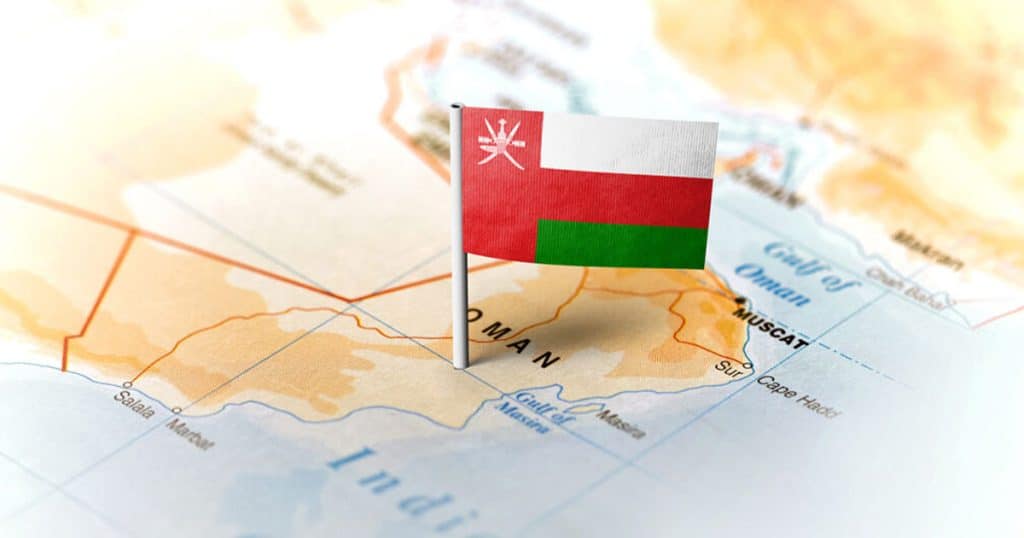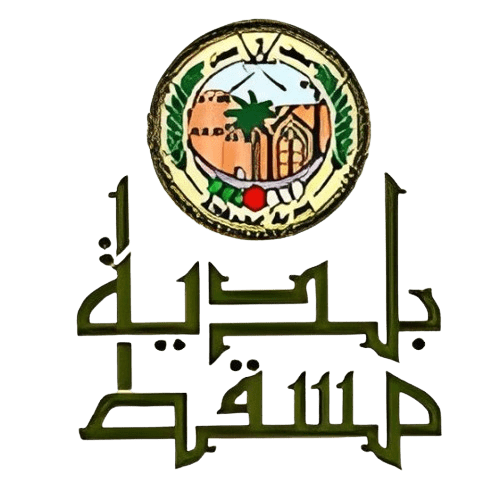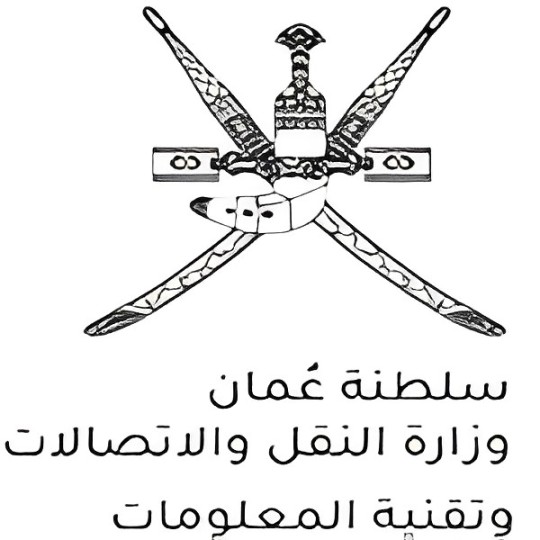+968 9596 3381
Phone Number
[email protected]
Email Address
Mon - Thu: 8:00 - 5:00
Online store always open
Phone Number
Email Address
Online store always open
WhatsApp Us Today
Drop Us an Email Today
Google Map Location
Saturday to Thursday

Introduction: GCC Tax Harmonization – What’s Happening?
Key Objectives Behind GCC Tax Harmonization
Major Tax Reforms Affecting Oman under GCC Alignment
Value-Added Tax (VAT) Compliance for Omani Businesses
Unified Corporate Taxation Across the GCC: What It Means for Oman
GCC Customs Union & Harmonized Tariff Structures
Transfer Pricing & Its Implications for Multinational Businesses in Oman
Digital Services & E-Commerce Taxation Across GCC Borders
Challenges Faced by Omani Businesses in Adapting to GCC Tax Harmonization
Tax Planning Strategies for Businesses Operating in Oman
Role of Technology in Ensuring Tax Compliance in Oman
How Tax Harmonization Strengthens Oman’s Regional Trade Competitiveness
Future Outlook: GCC Direct Tax Framework & Implications for Oman
Conclusion: Why Proactive Tax Compliance is Critical for Omani Businesses
The Gulf Cooperation Council (GCC) is accelerating efforts to harmonize tax structures across member states, aiming to create a unified and transparent fiscal environment that supports economic diversification and cross-border trade.
For businesses operating in Oman, GCC tax harmonization signifies significant changes in VAT compliance, corporate taxation, customs duties, and transfer pricing regulations. Staying ahead of these developments is essential for business continuity, competitiveness, and risk management.
The GCC’s tax harmonization agenda is driven by:
Reducing fiscal reliance on hydrocarbons.
Enhancing ease of doing business across member states.
Standardizing tax compliance frameworks to support regional integration.
Creating a level playing field for local and foreign businesses.
Facilitating intra-GCC trade and investment flows.
Aligning with global tax transparency and anti-avoidance measures.
Key tax reforms impacting Omani businesses as part of GCC harmonization include:
Implementation of Value-Added Tax (VAT) across all member states.
Introduction of Corporate Income Tax (CIT) with uniform rules.
GCC-wide Customs Union for standardized tariff structures.
Transfer Pricing (TP) regulations for cross-border transactions.
Digital taxation frameworks for e-commerce and digital services.
Enhanced tax reporting, documentation, and audit requirements.
Oman introduced VAT at 5% in April 2021, aligning with other GCC members like UAE, Saudi Arabia, and Bahrain. Key VAT compliance obligations for Omani businesses include:
VAT registration for businesses exceeding the mandatory threshold (OMR 38,500 annual turnover).
Timely VAT filings and accurate record-keeping.
Invoicing as per VAT-compliant templates.
Managing input VAT recovery mechanisms.
Cross-border VAT treatments for imports and exports within GCC VAT Implementing States.
As GCC countries work towards a Unified VAT Agreement, Omani businesses must stay vigilant for updates on rate changes, zero-rating policies, and digital VAT compliance enhancements.
Oman currently applies a 15% corporate tax rate, with small businesses and SMEs enjoying preferential rates. However, GCC discussions are moving towards a harmonized Corporate Income Tax (CIT) framework, which will introduce:
Unified tax rates or minimum thresholds across member states.
Standardized tax deductions, exemptions, and incentives.
Enhanced tax reporting and audit mechanisms.
Potential introduction of Economic Substance Regulations (ESR) aligned with OECD BEPS (Base Erosion and Profit Shifting) initiatives.
Omani businesses must prepare for stricter tax audits and documentation standards as regional CIT frameworks mature.
The GCC Customs Union aims to simplify cross-border trade by:
Implementing a Common External Tariff (CET) for goods imported into the GCC.
Facilitating single-entry customs clearance—goods cleared at one GCC port can move freely across member states.
Harmonizing product classification codes and tariff nomenclature.
Standardizing import/export documentation processes.
For Omani importers and exporters, understanding GCC Unified Customs Procedures is vital to minimize customs bottlenecks and ensure efficient supply chain management.
With tax harmonization, Transfer Pricing (TP) regulations are becoming more stringent across the GCC. Oman is expected to align with global TP best practices, which will require:
Preparation of TP documentation (Master File, Local File).
Conducting benchmarking studies to validate intercompany transactions.
Ensuring arm’s length pricing for goods, services, royalties, and financial arrangements between related parties.
Complying with Country-by-Country Reporting (CbCR) obligations for multinational groups.
Omani businesses operating with group entities in other GCC states must proactively assess and align their TP policies to avoid penalties and disputes.
The GCC is formulating taxation frameworks for digital services, e-commerce transactions, and cross-border digital supplies. For Omani businesses, this entails:
VAT on cross-border digital services provided to consumers in other GCC states.
Registration obligations for digital businesses exceeding threshold sales in target GCC jurisdictions.
Managing tax collection through simplified e-commerce VAT compliance mechanisms.
Ensuring compliance with digital invoicing (e-invoicing) mandates.
Digital-first businesses and online platforms in Oman must adapt their systems to manage indirect tax compliance seamlessly across the GCC region.
| Challenge | Impact |
|---|---|
| Increased administrative burden | Businesses need to upgrade accounting & tax reporting systems. |
| Navigating differing implementation timelines across GCC | Requires business-specific compliance strategies for each market. |
| Complexity in managing cross-border VAT obligations | Potential double taxation or missed reclaim opportunities. |
| Transfer Pricing documentation requirements | Significant resource allocation needed for compliance. |
| Training & capacity-building for tax teams | Continuous learning to align with evolving tax regimes. |
Omani businesses can mitigate tax compliance risks through:
Conducting a comprehensive tax impact assessment across GCC operations.
Restructuring business models to optimize supply chain tax efficiencies.
Leveraging Free Zones and Special Economic Zones (SEZs) for duty-free benefits.
Establishing robust internal tax controls and compliance frameworks.
Investing in Transfer Pricing documentation well ahead of regulatory deadlines.
Exploring available tax treaties and exemptions for cross-border operations.
Digital transformation is pivotal in managing complex tax obligations arising from GCC harmonization. Businesses must:
Deploy VAT-compliant ERP systems with automated tax calculations.
Implement e-invoicing solutions aligned with Oman Tax Authority (OTA) guidelines.
Use tax data analytics tools to monitor compliance health.
Integrate tax reporting workflows with GCC Unified Customs systems.
Ensure cybersecurity measures for secure handling of sensitive tax data.
While tax harmonization increases compliance obligations, it also:
Eliminates trade barriers by simplifying customs procedures.
Encourages foreign investment through transparency and standardization.
Enhances Oman’s competitiveness as a regional manufacturing and logistics hub.
Facilitates smoother cross-border operations for Omani exporters and service providers.
Aligns Oman with global tax governance standards, improving its reputation among global investors.
The GCC is exploring the introduction of direct taxes, including potential personal income taxes and capital gains taxes in the long-term horizon. For Oman, this could mean:
Expansion of the corporate tax base with minimum effective tax rates.
New reporting standards for high-net-worth individuals and family-owned businesses.
Enhanced collaboration with OECD and G20 tax transparency initiatives.
Opportunities for Oman to position itself as a compliant yet business-friendly jurisdiction balancing tax competitiveness with global best practices.
Businesses must stay agile, adopting flexible corporate structures that can withstand evolving direct tax obligations across the GCC.
GCC tax harmonization is reshaping the business environment in Oman. While it introduces complexities in compliance, it also opens doors for greater regional integration, investment attractiveness, and trade facilitation.
Omani businesses that invest early in understanding and implementing robust tax compliance strategies will gain a competitive edge, reduce regulatory risks, and position themselves as credible partners in the GCC’s evolving economic landscape.




GCC Tax Harmonization refers to the collective efforts of Gulf Cooperation Council (GCC) member states to align tax policies, structures, and compliance frameworks to create a unified fiscal environment across the region.
Omani businesses will face standardized tax compliance obligations across VAT, Corporate Tax, Customs, and Transfer Pricing, ensuring uniformity with other GCC countries.
Yes, Oman implemented a 5% Value-Added Tax (VAT) in 2021, aligning with the Unified GCC VAT Framework.
While Oman’s Corporate Tax rate is currently at 15%, ongoing GCC discussions on tax alignment may influence rate adjustments or introduce minimum effective tax thresholds.
Businesses in Oman must register for VAT if their annual taxable turnover exceeds OMR 38,500.
Yes, through the GCC Customs Union, Oman applies a Common External Tariff (CET), ensuring standardized customs duties on imported goods across member states.
Businesses operating within Oman’s Free Zones continue to enjoy customs and tax incentives. However, certain cross-border transactions may still be subject to VAT and compliance checks.
Transfer Pricing involves setting prices for transactions between related entities. Omani businesses will need to maintain TP documentation to ensure arm’s length pricing under GCC tax alignment.
Transfer Pricing obligations typically apply to multinational groups or businesses with cross-border related party transactions, but small businesses must be aware as regulations evolve.
While Oman has considered PIT, it is not implemented yet. However, long-term GCC fiscal policies may introduce personal taxation frameworks in the future.
Unified tax structures simplify customs procedures, reduce compliance duplication, and make Omani exporters more competitive in regional trade.
Yes, digital businesses providing services to consumers in other GCC states may need to register for VAT in those jurisdictions, depending on cross-border supply thresholds.
Oman is gradually introducing e-invoicing standards to align with GCC digital tax compliance mandates, improving transparency and audit readiness.
Businesses should conduct TP risk assessments, prepare Master & Local Files, benchmark intercompany transactions, and ensure documentation is audit-ready.
Harmonization reduces the risk of double taxation by standardizing tax treatments and promoting bilateral tax agreements between GCC states.
ESR ensures that businesses claiming tax benefits in a jurisdiction have substantial activities there. Oman is aligning ESR requirements with GCC and OECD BEPS standards.
Yes, exports outside Oman and the GCC VAT Implementing States are zero-rated, but documentation is essential for VAT reclaim eligibility.
It offers more predictability and clarity on tax obligations across the region, making Oman an attractive and compliant investment destination.
Yes, the GCC’s Unified Customs Law aims to streamline import/export processes with single-entry customs clearance and harmonized documentation.
Penalties can include monetary fines, suspension of trade licenses, and restrictions on cross-border trade activities.
It strengthens intra-GCC trade by reducing regulatory friction, ensuring a level playing field across member states.
While compliance expectations will increase, simplified tax processes, digital platforms, and SME support programs aim to ease the burden.
Yes, most Omani businesses are required to file VAT returns on a quarterly basis unless otherwise directed by the Oman Tax Authority (OTA).
Efficient customs clearances and harmonized tax treatment across the GCC will enhance Oman’s competitiveness as a regional logistics hub.
Yes, service providers dealing with cross-border clients within GCC states must manage VAT obligations and assess place-of-supply rules.
Oman is upgrading its digital tax infrastructure to align with GCC-wide initiatives such as e-invoicing, tax portals, and compliance automation.
While no fixed date is confirmed, discussions are ongoing. Businesses should anticipate regional corporate tax alignment within the next 3–5 years.
While FTAs remain in effect, harmonized tax regimes improve Oman’s ability to negotiate and enforce trade agreements with clarity on tax treatments.
Yes, businesses should expect more frequent and detailed tax audits as Oman strengthens tax governance and aligns with GCC audit protocols.
We provide comprehensive tax advisory, VAT registration & filing, Transfer Pricing documentation, tax impact assessments, ERP system alignment, and ongoing compliance support tailored for businesses navigating GCC tax regulations.





Let us handle your company registration, office setup, and licensing to ensure a seamless process.
At setupinoman, we specialize in assisting businesses with establishing their presence in Oman. Our services include:
Business Registration & Licensing – Handling all MoCIIP applications and approvals.
Legal Documentation & Compliance – Ensuring smooth document translations and notarization.
Banking & Office Setup – Helping businesses secure bank accounts and office leases.
Visa & Employee Services – Managing work permits and Omanization requirements.
What is the minimum investment required to qualify for a residency visa in Oman?
The minimum investment typically starts from OMR 20,000 for standard investor visas. However, the Golden Visa program requires investments starting from OMR 250,000.
Can I own 100% of my business in Oman as a foreign investor?
Yes, Oman allows 100% foreign ownership in most sectors, especially under the Foreign Capital Investment Law. Some regulated sectors may require local participation.
Is real estate investment enough to obtain a residency visa in Oman?
Yes, under the Golden Visa category, purchasing property worth at least OMR 250,000 can qualify you for long-term residency.
What is the difference between the Golden Visa and the Standard Investor Visa?
Golden Visas offer longer residency terms (5–10 years), faster processing, and broader eligibility, while Standard Investor Visas require lower investment but shorter duration and renewals.
How long does the investor visa process take?
On average, it takes 4 to 8 weeks, depending on security clearance, company registration, and documentation accuracy.
Can I apply for residency before launching my business?
You must complete company registration and capital deposit before applying for the residency visa under the business investor category.
Is it necessary to open a corporate bank account in Oman for this process?
Yes, you need to deposit the minimum share capital into a corporate account to receive the capital deposit certificate, which is essential for visa processing.
Are there any age or nationality restrictions for investor visas?
There are no age restrictions, and citizens from most countries are eligible, although background checks and financial verification are required.
Do I need a physical office in Oman for my business registration?
Yes, a registered office address is mandatory — this can be a virtual office, shared workspace, or physical premises, depending on your business type.
What types of businesses are best for investment-based residency?
Tourism, tech, healthcare, logistics, real estate development, and manufacturing are some of the most attractive sectors for foreign investors.
Is free zone investment also eligible for residency visas?
Yes, businesses established in Oman’s free zones like Duqm or Salalah can qualify, though some limitations apply based on visa type and activity scope.
Can I bring my family with me under an investor visa?
Yes, investor visa holders can sponsor family members including spouse and children, subject to documentation and proof of income.
What are the key documents required for an investor visa application?
Passport copies, security clearance, MOA, business license, capital deposit certificate, tenancy contract, and recent photographs are commonly required.
Do I need to hire local employees?
While not mandatory in all cases, certain sectors may require a minimum Omanization rate to qualify for full operational licensing and staff visa issuance.
What happens if I close my company after receiving the residency visa?
Your visa may be cancelled unless you transfer your sponsorship or obtain a different qualifying residency basis (e.g., real estate or employment).
How long is the investor visa valid?
Standard visas are issued for 2–5 years and renewable; Golden Visas are valid for 5 or 10 years, depending on the investment category.
Can I operate multiple businesses under one investor visa?
Yes, but you must ensure each entity is properly registered, and you hold a qualifying ownership percentage in each.
Are there any tax advantages for foreign investors?
Oman offers no personal income tax and competitive corporate tax rates (15%). Free zones also offer tax holidays for up to 10 years.
Can I change business activities after obtaining a visa?
Yes, but you must update your commercial registration and possibly re-obtain approvals or licenses depending on the new activity.
Is a local sponsor required for mainland businesses?
Not anymore in most sectors. Since the law change in 2020, most businesses can be 100% foreign-owned without requiring a local partner.
How do I maintain my visa status if I spend time abroad?
Investor visas typically allow you to spend time abroad, but extended absence (6+ months) may affect renewal or validity, unless explained.
Are digital or online businesses eligible?
Yes, tech and e-commerce businesses are highly encouraged and eligible for both investor and long-term residency options.
Do I need to show ongoing revenue to maintain the visa?
Not always, but inactivity or lack of compliance may risk rejection during renewal. Annual filings and proof of operation are recommended.
Can I apply for residency through an existing business I acquire?
Yes, provided you meet ownership thresholds and the business is compliant with all legal, tax, and licensing requirements.
What is the role of the Oman Investment Authority in this process?
OIA supports large-scale strategic investments, especially in sectors aligned with Vision 2040. Smaller businesses work mainly with MOCIIP and ROP.
Is the visa tied to one company or can I invest in multiple?
You can invest in multiple companies, but your primary residency visa will be tied to the company where you have majority stake or initial approval.
Do I need health insurance for the investor visa?
Yes, valid health insurance is a prerequisite during visa application and renewal processes.
How much capital is required for the Golden Visa through real estate?
You must invest at least OMR 250,000 in approved properties; for 10-year visas, the amount increases to OMR 500,000 or more.
What is the role of the Royal Oman Police (ROP) in this process?
ROP handles visa issuance, background verification, residency cards, and security clearances.
Can I get citizenship through business investment in Oman?
Currently, Oman does not offer direct citizenship-by-investment programs. However, long-term visa holders may be eligible for permanent residency or naturalization under exceptional circumstances.
Fill out our quick and easy contact form below. Briefly tell us about your vision and goals, and we’ll be in touch shortly to discuss a personalized plan for your success.
Al-Khuwair, Muscat, Sultanate of Oman